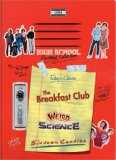| Reviews & Columns |
|
Reviews DVD TV on DVD Blu-ray 4K UHD International DVDs In Theaters Reviews by Studio Video Games Features Collector Series DVDs Easter Egg Database Interviews DVD Talk Radio Feature Articles Columns Anime Talk DVD Savant Horror DVDs The M.O.D. Squad Art House HD Talk Silent DVD
|
DVD Talk Forum |
|
|
| Resources |
|
DVD Price Search Customer Service #'s RCE Info Links |
|
Columns
|
|
|
John Hughes: The High School Flashback Collection (Sixteen Candles, The Breakfast Club, and Weird Science)
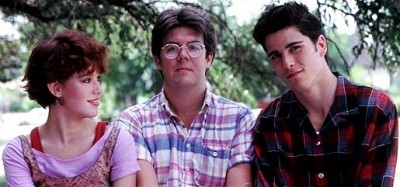
Over the course of 1984-85, John Hughes singlehandedly turned teen cinema into an institution worthy of praise and notable box office attention. Of course, Hughes went on to accomplish much more during his run as Hollywood's go-to man for youth adventures, but three films of varying purpose and execution, "Sixteen Candles," "The Breakfast Club," and "Weird Science," paved the road for the brittle genre, with "Club" rightfully assuming its place as an all-time classic motion picture. Hughes's unanticipated directorial accomplishments eventually became the stuff of '80's strip-mall cinema legend and VH1 cattiness, but his first year spent feeling out his filmmaking proficiency is a special event this DVD collection celebrates, albeit in pathetically accidental fashion.
THE FILMS

For his directorial unveiling, John Hughes selected a piece of material held close to his heart; a screenplay that contained beloved topics: the chaos of the nuclear family and the humiliation/redemption of the average American teen. "Sixteen Candles" is largely Hughes testing his gifts behind the camera, inadvertently pioneering a genre that would come to define his career. It's a rough sketch of future triumphs, but "Candles" is a brazenly mischievous, consistently uproarious comedy that christens the devastating Hughes-fu with vivacious results.
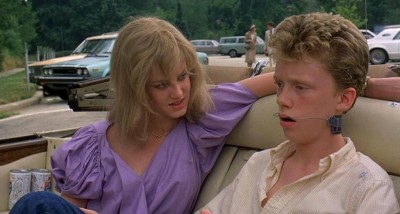
Samantha Baker (Molly Ringwald) has finally turned 16, with all the promise of pubescent growth that accompanies the landmark age, and nobody has noticed. With Samantha's extended family trying to marry off her older sister, the lonely teen turns her attentions to school crush and popular stud Jake Ryan (Michael Schoeffling), who appears to return the interest, much to her horror. Caught in the middle is geek Farmer Ted (Anthony Michael Hall), a freshman with designs on Samantha, but also fears the senior wrath of Jake. When the night brings a blow-out party, Farmer Ted and Jake join forces to locate Samantha, while the perturbed teen tries to make the most of a crucial birthday that no one bothered to celebrate.
Bringing a multi-flavored wit honed at the offices of the National Lampoon, and working off the success of his 1983 screenwriting effort, the incomparable "Vacation," John Hughes accepted the offer of prestigious feature-film direction duties with utmost seriousness. Perhaps this is why "Sixteen Candles" has a certain fearlessness about it that could only emerge from a newcomer ready to please and unable to discern industry limits.
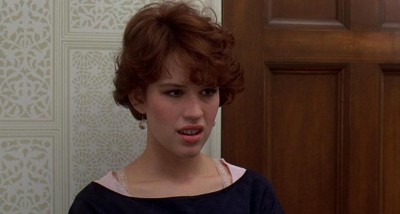
While hardly a revolutionary screenplay, "Candles" is nevertheless a work of unparalleled comic generosity, merging customary teen hijinks with a newfound sense of timing, character depth, and concentrated group effort. Hughes writes for the rafters, creating a barnstorming effort for his first film that mixes slapstick with truthful teen attitude, rather confidently introducing a sharp edge to the genre that brings the Clearasil crowd to light in a rewarding manner. Hughes refuses to entertain cliché, instead turning every character into a small cradle of authenticity, either in a directly comic fashion or through evocative adolescent impediment. "Sixteen Candles" brings on the laughs in impressive fashion, but Hughes cares about these characters as he brusquely shakes them down for laughs. It's an intoxicating equilibrium that the filmmaker would explore to even greater satisfaction as the decade wore on.
Hughes's eye for casting is also a miracle that produces a movie with atypical encouragement. As the central image of self-conscious, gawky teendom, Ringwald's portrayal of Samantha's superficial suffering during this high tide of romantic entanglements and prized breast development (or lack thereof) sets the gold standard for slack-jawed youthful performances. There's never a moment where the audience doesn't believe Samantha's horror as her day goes from bad to worse. While a teen herself during filming, Ringwald conveys the ideal level of angst, facing down a family that's ignored her, a love interest she can't even talk to, and a geek who wants to rent her panties out to avoid paying off a hefty floppy disk wager. Ringwald sells the bejesus out of the role, and Hughes uses her pubescent discomfort to backdrop the film's more robust sequences of indignity.
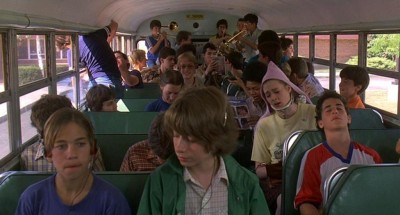
Truthfully, "Candles" is teeming with outstanding work from the entire troupe, with the possible exception of Schoeffling. Oh, I get the whole "dreamboat" attributes of the actor, but the character is a complete sleaze (casually chatting up how he could "violate" his inebriated girlfriend to Farmer Ted), and Schoeffling is visibly half-asleep during his performance. Mercifully, Hughes fills the rest of the cast out with amazingly game talent, from the infamous Chinese exchange student Long Duk Dong (an adorable Gedde Watanabe) to Samantha's alternately over-protective and pervy grandparents (Billie Bird, Edward Andrews, Carole Cook, and Max Showalter), who run off with the film with the little screentime they're permitted.
Of course, there's Anthony Michael Hall as the Gandalf of the geeks, the lecherous Farmer Ted. If my black magic skills were up to snuff, I would plop Hall into a Ziploc bag at this pristine age and hold onto him forever. Certainly the actor found stronger roles with Hughes as time wore on, but he was never quite as fresh, convincingly clumsy, and as easily led as he was in "Candles." Hall knocks every scene out of the park with his fluid timing and general embryonic appearance. He's a memorable orthodontics-enhanced thorn for the film to abuse as Hughes sees fit.
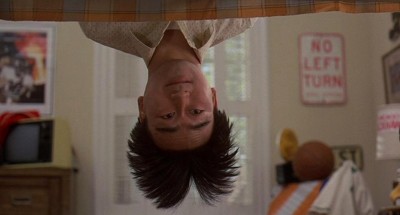
In "Sixteen Candles," John Hughes made the high school experience relevant again, resuscitating the horror of forced social functions such as the dreaded afternoon bus ride or evening dance. In 1984, it restored some dignity to teen cinema, bringing along needed playfulness. In 2008, the sensations still resonate, with renewed appreciation for the exceptional performances, a crackerjack soundtrack of '80s pop hits (if there's Thompson Twins, there's Brian with a smile), and the universal concept of a teenager melting down on the most important day of her life.

With everything that "The Breakfast Club" has become over the last two decades, it's difficult to peel away the pop culture muck and appreciate the elements the film executes so flawlessly. It's the quintessential teen drama; a compassionate, insightful, and intense motion picture that brings to life the soulful concerns of high schoolers without reducing them to bottom-feeding cliché or marketable MySpace bullet points. It's John Hughes's masterwork: the film that has defined his oeuvre and renewed faith in the industry's capacity for intelligent, youth-slanted cinema.
Gathering early on a Saturday morning for detention at Shermer High School, Brian the brain (Anthony Michael Hall), Claire the princess (Molly Ringwald), Andrew the athlete (Emilio Estevez), Bender the criminal (Judd Nelson), and Allison the basket cast (Ally Sheedy) have come to contemplate their delinquent actions. Monitored by Principal Richard Vernon (the late Paul Gleason), the group is combative, maneuvering around opposing social status and mental health concerns; but as the day wears on, these five strangers start to learn about each other, soon communicating their darkest fears, opening up and developing relationships that wouldn't dare come to pass during regular school hours.
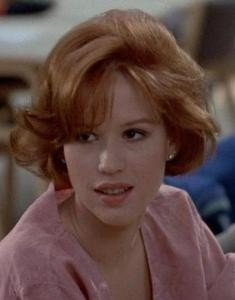
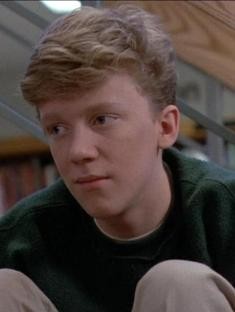
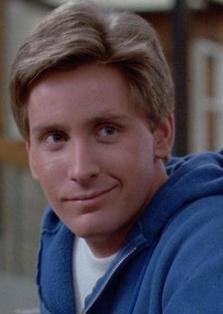
There's no doubt that "Breakfast Club" is high-tide melodrama. Hughes draws from a dense pool of stereotypes to unify these characters, who putter about the day inadvertently breaking down social obstructions. In his highly theatrical screenplay, Hughes labels these kids loudly, cleanly drawing the dividing lines that will soon be wiped clean. Opening with a supportive, literally explosive David Bowie quote, Hughes has a specific agenda of discovery for "Breakfast" that eluded the rest of his work; a drive to reveal to the screen the dramatic engineering of the teen experience, idealized through lofty monologues and disrespectful communication.
Perhaps the harshness is why I consider "Breakfast" Hughes's most enduring work. The detention doesn't bring the kids closer in a prayer-circle-style joining of hands, but through a more brutal hazing period, led by the sneering rebel Bender, who puts his fellow detainees through his own trial of judgment. Maybe the caustic dialogue emits from the patient, articulate pen of a thirtysomething screenwriter, but the sentiment rushes through the veins of the piece, instilling the feature with needed hostility as the kids try to decode each other through annoyance, jesting, and simple pleas for attention.
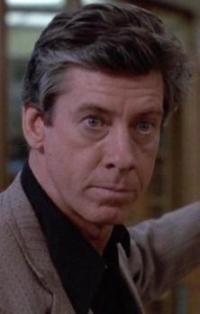
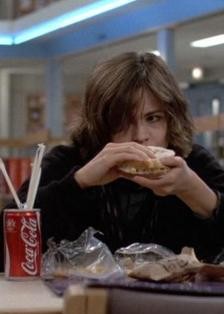
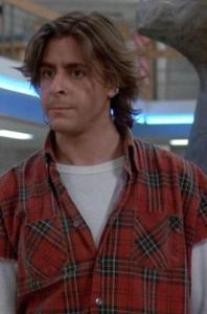
"Breakfast Club" is alive with details (one could almost smell the library interior or Vernon's aftershave), again reinforces Hughes's musical selection supremacy, and is cast with a superb spectrum of actors who try to engage the screenplay on their own terms. They take Hughes's expansive stabs at profundity and channel it through their clever, nuanced tics of teenaged behavior, landing the thematic construction of the picture softly inside sincerely inspired performances. I love them all here, with special attention paid to the combative interplay between Gleason and Nelson. The gentlemen bring terror to the material as Vernon searches for a way to capsize Bender and become the alpha male of the morning, robbing the role of one-note wicked ways, revealing Vernon as a haggard man with a genuine fear of his charges and their potentially catastrophic role in his elderly years.
Of course, "Breakfast" contains a jovial mood to match the encroaching gravity. Hughes is wise to illustrate the gang as willing goofs, soon united in making Vernon's day the worst possible. Again, the interplay of the cast is key here, with each actor sacrificing a certain part of their ego to maintain a sense of communal exploration as the students get high, bop around the library, and engage in impromptu makeovers before the day is over. "Breakfast" is frequently hilarious. Who else but Hughes could work in a "Bridge on the River Kwai" reference, present a lunchtime offering of a Cap'n-Crunch-n-Pixy-Stick sandwich, and construct a Lesteresque hallway chase, and still bring the film down to a manageable size.
The sobering, iconic final act, where the group finally discloses their uncertainties and argumentatively works out their public personas, is where "Breakfast" cuts the deepest. Hughes rests comfortably in his element during a confessional moment like this, imparting the screenplay with germane high school and domestic stories of psychological trauma. Even if one couldn't relate to the isolation and nakedness of the sequence, the resounding vibration coming off the actors remains something to behold. There's not a single false beat to be found, concluding "Breakfast" with a singular display of emotional discharge unheard of in its genre.
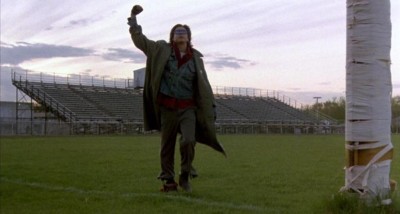
Battered by disingenuous MTV adoration, diluted through the recent reprehensible marketing plans of "American Teen" and JC Penney, and contorted to become the definitive mocking voice of a generation, it's easy to gloss over what "Breakfast Club" achieves with a beautiful, modest effort. It's a story of communication and hesitant friendship, and at the heart of it all is a sincere feature of concern and catharsis within a demographic that's often disregarded. Hughes paints the discontent and frustration like a master. No matter how much the media tries to water down the resonance of the picture by underlining the era in which it was made, it doesn't take away the profound characterizations and filmmaking offered for exquisite emotional contemplation.
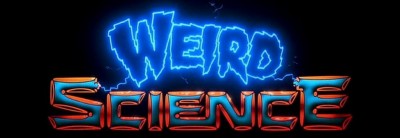
Inside the average 15-year-old boy is a furious mechanism of sexuality that is so demanding, it clouds rational thought. In "Weird Science," John Hughes harnesses that impetuous, erection-heavy urge and channels the tension into a full-fledged cartoon; he thins down his overstuffed baggage of pathos with a screwball comedy that combines titillation, humiliation, and the awe-inspiring, traffic-stopping screen presence of Kelly LeBrock.
Two bullied high school students, Gary (Anthony Michael Hall) and Wyatt (Ilan Mitchell-Smith) are sex-starved losers, wishing for a day when girls would notice them. Finding inspiration from "Frankenstein," the boys decide one lonely night to create a woman on the synthetic playing field of computer technology, soon upping the ante with bra headgear and voodoo chants. Out of the effort comes Lisa (Kelly LeBrock), a gorgeous older woman who offers Gary and Wyatt the chance to satisfy all their needs. The boys are in shock, but under Lisa's care, they are instilled with newfound self-confidence, learning the value of honesty from their fantasy object, along with verbal defensive moves to repel bullies (Robert Downey Jr., Robert Rustler) and the torment of Wyatt's demented older brother, Chet (Bill Paxton).
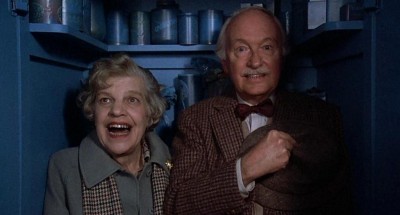
"Weird Science" is perhaps the most controversial entry in the John Hughes filmography, surpassing even "Curly Sue" for sheer creative randomness. Coming after the sensitive sleeper hit "Breakfast Club," Hughes took his vision for a joyride, hoping time spent observing horny, clueless teenage boys would recharge some creative batteries.
I wouldn't defend "Weird Science" in the court of tasteful cinema, but it's a picture that has always managed to tickle me, generating huge laughs with appealing exhibitions of slapstick and painful teen mortification. Built on a foundation of "anything goes" fantasy filmmaking, "Science" gallops for the giggle gold, using everything Hughes has in his bag of tricks to keep an outlandish story worthy of audience investment and side-splitting reaction.
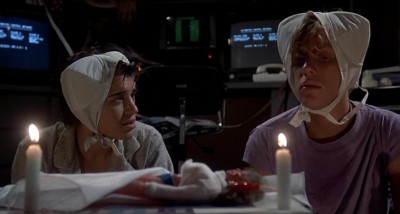
The actors mug brazenly for the camera and even break the fourth wall to prod the viewer, there's nudity and assorted bombs of shame zone excitement to push the PG-13 further than expected, and the film isn't afraid to drop storytelling altogether to simply stand back and watch improvisational sparks fly. "Science" isn't an efficient viewing experience resembling other Hughes films; it's loose and daring, silly and harmless. While the other pictures have always harvested a methodical sense of humor, "Science" is a farce, and a willing one at that, taking full advantage of Hughes's crack timing and deliriously superlative editorial orchestration.
And then there's Kelly LeBrock. While already established as a top model blessed with ethereal beauty she once begged us not to hate, LeBrock is Hughes's secret weapon in "Science." There are few adjectives around to describe the actress's visual appeal; she's a flawless creature with miraculous aim to her sex appeal, wielding her billowy lips and disco hair like a goddess. She's rightly cast as the object of desire here, but even better, she's a credible, enchanting actress. LeBrock steals the movie, turning up her charm to impossible volumes of delight. Certainly Hughes isn't interested in creating dimensional female characterizations in "Science" (this is a tree house production, no chicks allowed), so LeBrock has to worm her way into the fun, and she's a joy to watch once locked in full comedienne mode, bettering the film with her blinding beauty and bighearted camera charisma.
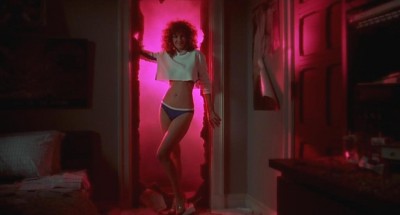
You have to hand it to Hughes here. The script calls for the ultimate sexual weapon to exhaustively bewitch Gary and Wyatt and the rest of their graduating class, and LeBrock, circa 1985, is the definitive casting choice. The role is her glass slipper. It's a shame Steven Seagal karate-chopped her promising career short.
There's no doubt that the screen favors LeBrock, but the guys make their own special impression as well. Hall and Mitchell-Smith are capable Laurel and Hardy types who accurately sell the teen unease vibe Hughes is aiming for. Hall reaches for the brass ring here with his constant bug-eyed expressions and drunken improv rants, but Mitchell-Smith (who was 15 years-old during production and frankly looks it), makes for a snappy, high-pitched straight man, dutifully following the idiosyncratic instruction from the director to sly comedic peaks that occasionally require the wearing a panties and the aforementioned bras. Hall and Mitchell-Smith are a fluid, believable comedic team, adding the perfect pimply, gawky verisimilitude to a film that frequently ignores its intention time and again in the pursuit of horseplay.
Of course, no discussion of the picture could pass without mentioning Bill Paxton as Chet. A hardass big brother who enjoys blackmailing his sibling, military crew cuts, and greasy pork sandwiches served in dirty ash trays, Chet is the ideal, animated villain. Paxton dives in with everything he's got here, and his performance brings to "Science" an even larger sensation of inspiring anarchic energy. It plops an immediate smile on my face to consider that, in one year, Paxton went from this berserk performance to Hudson in "Aliens." The man could do no wrong.
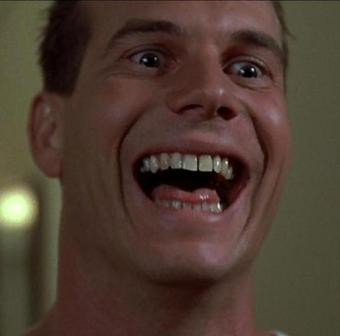
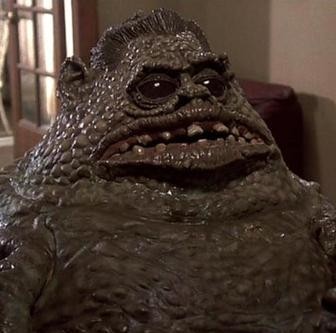
I certainly fault Hughes for the final act, where "Science" tries to bus in a heart in a film that doesn't require a drip of sentimentality. Going from Gary and Wyatt challenged by a motorcycle gang of "Road Warrior" types at their whirlwind party to softly expressed pearls of girlfriend adoration feels a little stillborn to me no matter how many times I consume this movie. Everything is nicely performed, just clumsily laid in by Hughes, who, after riding this train into the dense forest of screwball liturgy, suddenly wants to locate the rails again for maximum structural articulation. It always rang false to me. Gary and Wyatt deserve love, but it doesn't have to slam the brakes on the shenanigans.
"Weird Science" is a riotous production, blending sci-fi and technological conceits with an age-old exhibition of inexperienced teenage lust (the boys are faced with Lisa, and all they want to do is shower with her). Surely it's the least profound film Hughes ever made, but for sheer laughs, it's one of his strongest efforts. Throw in an infectious Oingo Boingo title tune, LeBrock in the finest fashions the Reagan-era could offer, and intoxicated tales of large-chested, knee-happy ex-girlfriends, and you have yourself one delectable adolescent comedy.
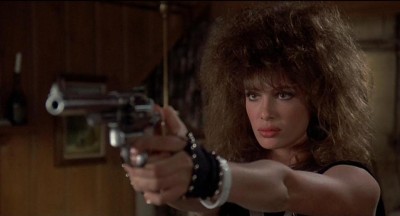
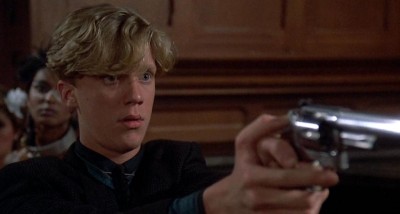
THE DVD
Visual:
All three films are presented in anamorphic widescreen (1.85:1 aspect ratio), with transfers ported over from the previous "High School Reunion" release. While the images are nicely spruced up for DVD consumption, the black levels are frequently dreadful on "Weird Science" and "Sixteen Candles," with nighttime action detail smothered. Certainly this is the best these pictures have looked on a home format, but there's plenty of work left to be completed to give the features true optical splendor.
Audio:
With each film offering Dolby Digital 5.1 and DTS tracks to enjoy, it's safe to say that most DVD audio desires are covered in full. The tracks are welcoming, energetic contributions, with the more advanced audio mixes working surround channels with artificial expertise. The famed soundtrack cuts are also presented with superb fidelity, adding to the true experience of a John Hughes film. Spanish and French 2.0 audio tracks are offered as well.
However, and it pains me to report this, but the "Weird Science" mix is still missing dialog lost during the "High School Reunion" release. It stuns me that Universal hasn't corrected this problem by now.
Subtitles:
All the DVDs offer English SDH, Spanish, and French subtitles.
Extras:
Here's the moment to rejoice, right? After all, Universal finally got off their behinds and scrounged up some actual supplements for these three monumentally undernourished (in terms of detailed production history recollections) motion pictures. At last, questions will be answered! Insight will be provided! We'll finally see a 40-year-old Ilan Mitchell-Smith!
No dice. Would you settle for shallow thoughts from a spiteful Diablo Cody instead?
Sixteen Candles
"Celebrating 'Sixteen Candles'" (38:04) is the first documentary offered on the DVD collection, and sets the disappointing tone for the rest of the supplements to come. Of course, Hughes himself doesn't show up to reflect on his directorial inauguration (about four publicity stills, recycled ad nauseum, are his only appearance), but what's shocking here is the absence of Ringwald, who's the ideal focal point when time comes to discuss this picture.
Who do we get instead? Pleasant enough interviews with actors such as Watanabe, Hall, Haviland Morris, Paul Dooley, Blanche Baker, John Kapelos, and Justin Henry, who try their best to describe the magical Hughes touch. Overall, it's a trivial discussion of intent, music, and meaning from the cast, along with a special peanut gallery made up of movie journalists and filmmakers (Michael Lehmann, Amy Heckerling, Marco Siega, and Diablo Cody). Their contributions to the discussion mostly consist of meaningless memories (with appropriate and cumbersome film clips to pad matters out), with Cody singled out here as an individual who was clearly inspired by Hughes's work, but doesn't come across as someone who even likes the movies. Her appearance here as the mandatory Tarantino figure really tosses a wet blanket on the whole effort.
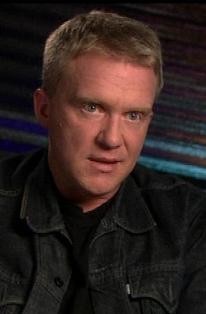
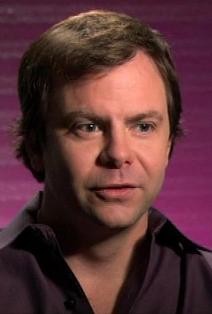
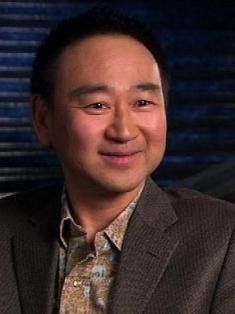
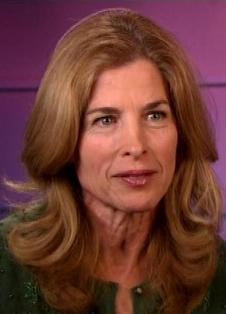
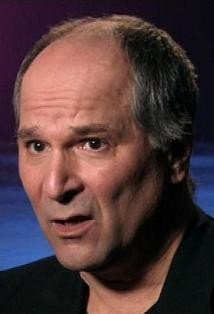
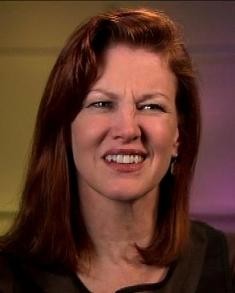
Seriously, Universal couldn't nail down Ringwald for an interview? Schoeffling I get, but Ringwald? Why even bother without her?
A Theatrical Trailer has not been included on this DVD.
Breakfast Club
A feature-length audio commentary from actors Anthony Michael Hall and Judd Nelson (with help from DVD producer Jason Hillhouse) kicks off the "Breakfast Club" supplementary action on a dispiriting note. Hall and Nelson are game to talk up the film, and they put their special stamp on the track with discussions of the looping process, the intricacies of the splendid library set (built inside a gym), and the extensive rehearsal process Hughes insisted on. Actual stories of production are wholeheartedly welcome, but the track is quick to fall apart, with everyone in the room taking turns either describing action onscreen (the old "play by play" commentary), or speculating on themes and motivations.
Irritatingly, moderator Hillhouse acts as though he was a crew member on the film, commenting on the action like an insider, immediately discarding his role as interviewer. Want to learn more on the Hughes directorial process? The widely reported tension between the actors? A comment on any potential sequels that have been threatened for decades? Nope. The track is a conversational piece. Enjoy it as a chance to spend time with Hall and Judd, just don't expect any insight.
"Sincerely Yours" (51:09) brings back the usual documentary suspects, joined here by Ally Sheedy, Judd Nelson, and costume designer Marilyn Vance. Not surprisingly, the offering is most potent when questioning the actual Breakfast Club on the production experience. Nelson is especially animated, submitting carefully considered thoughts on the meaning of character actions and shedding some interesting light on a few of the picture's controversial moments.
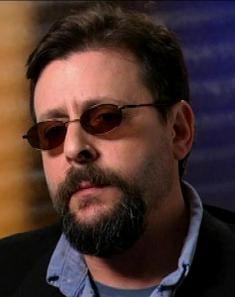
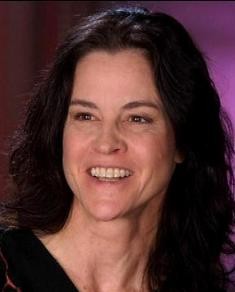
Again, no Ringwald and no Estevez. However, there's a poignant tribute to Paul Gleason.
"The Most Convenient Definitions: The Origin of the Brat Pack" (5:35) explores the sordid history of writer David Blum and his New York Magazine cover story that branded the hot young actors of the day as a collective group of miscreants. The miscreants were not pleased.
A Theatrical Trailer has been included on this DVD.
Weird Science
"It's Alive: Resurrecting 'Weird Science'" (16:40) draws the shortest straw in the supplemental department, but there's good reason for the brevity: no LeBrock, Paxton, or Mitchell-Smith. With Hall, Kapelos, and Vance leading the conversation, a few nuggets are pulled out covering the state of Hall's wild hairstyle and the overall befuddled attitude people had with this follow-up to the severe "Breakfast Club," but the majority of the featurette is devoted to peanut galley contributions. Surely there's more to a "Weird Science" than strangers to the production simply checking off their favorite scenes and marveling at outfits?
"Weird Science: Pilot Episode" (22:37) is the commencement effort for the cable television spin-off. I realize the show has its admirers, even fervent fans. I'm not one of them. Though the casting of Vanessa Angel in the Lisa role is a truly inspired choice.
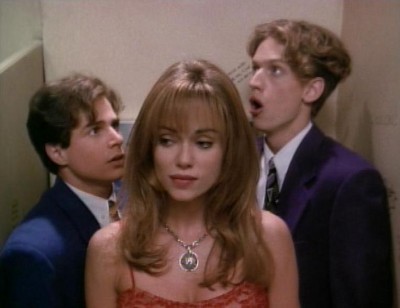
A Theatrical Trailer has been included on this DVD.
FINAL THOUGHTS
Three classic pieces of John Hughes cinema. One mediocre DVD box set. Once again the ball has been dropped. Is it too much to ask for John Hughes to be involved in his own DVDs?
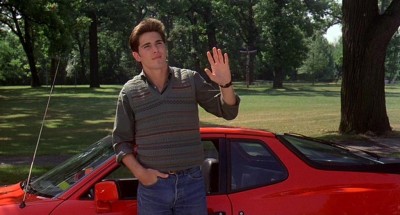
(screenshots and stills do not reflect final DVD product)
|
| Popular Reviews |
| Sponsored Links |
|
|
| Sponsored Links |
|
|
| Release List | Reviews | Shop | Newsletter | Forum | DVD Giveaways | Blu-Ray | Advertise |
|
Copyright 2024 DVDTalk.com All Rights Reserved. Legal Info, Privacy Policy, Terms of Use,
Manage Preferences,
Your Privacy Choices | |||||||









